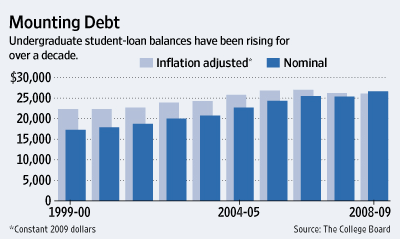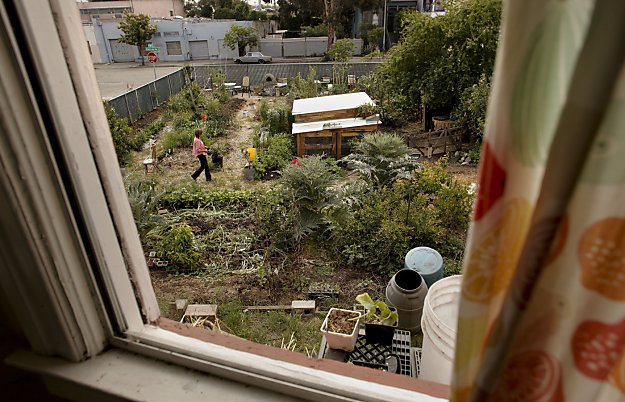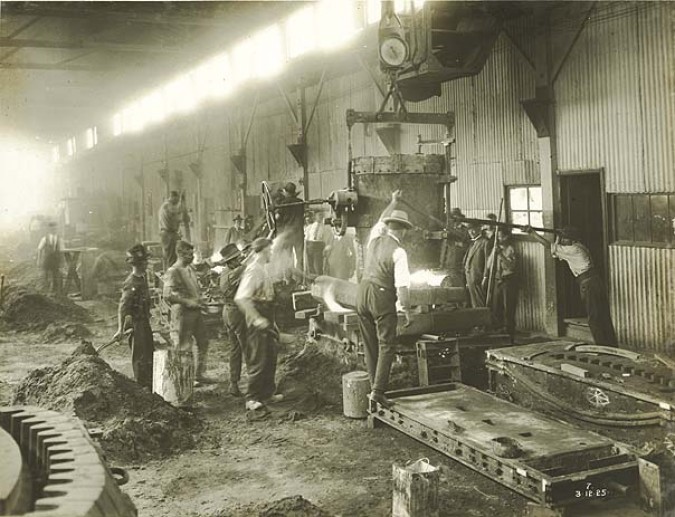Archive for the ‘Opinion’ Category
Important fish overused to make pet food, paint and cosmetics
Until I read The Most Important Fish in the Sea, I had never heard of Menhaden.
Apparently Menhaden are the most important fish in the sea.
As you might predict, Menhaden are in trouble from overfishing.
Humans don’t generally currently eat menhaden, but other fish do.
The oceans need Menhaden to clean the water. According to the article:
Some scientists believe that menhaden could be a partial solution to pollution and the oxygen-depleted areas of water called, bluntly, “dead zones.” In these zones, pollution-related algae blooms use up the oxygen in the water, making it difficult for other species to live; it’s a particular problem in estuaries like the Chesapeake Bay and the Long Island Sound, where menhaden were once plentiful. Menhaden are filter feeders, swimming with their mouths open and straining phytoplankton (algae) and other particles with their gills. While the exact content of what menhaden filter varies by location and season, it is clear that menhaden have been removing damaging particles from our waters since time immemorial.
“Menhaden are the main herbivore in the ocean that eat phytoplankton, and without them, we have a problem,” says Bill Goldsborough, senior scientist at the Chesapeake Bay Foundation.
Menhaden are oily, so commercial enterprises use their extracted oil to manufacture fish oil, paint and cosmetics.
According to the article I cite, Omega Protein is the sole company that fishes for Menhaden on the East coast of the United States. Its projected 2011 sales of USD $218 million is enough for them to be a powerful influence on legislatures in the state of Virginia. Virginia is the only East coast state that allows the vast commercial harvesting of Menhaden practiced by Omega Protein.
I know next to nothing about the fishing industry, but it strikes me as lunacy to possible seriously damage the sea for a paltry $218 million dollars of revenue a year. While I’m sure it seems like a lot of money to Omega Protein, it’s a tiny and trivial amount of money in the overall scheme of things. If the article I linked to is telling the full and correct story, the owners at Omega Protein should switch gears and find something else to do to make money.
On the front page of the Omega Protein website I found the following text:
More than ingredients. Ingenuity.
One small fish improves the health of animals, humans and plants. One small fish meets the nutritional needs of an industry. Who could have imagined it? Omega Protein did. For the last century, we have processed every usable aspect of that small fish to provide the industry with powerful nutritional ingredients. And while we didn’t set out to become the world’s largest producer of omega-3 fish oil and North America’s largest manufacturer of protein-rich fishmeal and organic fish solubles, we ended up doing just that. Fish by fish.
By their own admission Omega Protein didn’t set out to do what they’re doing. Now would be a great time to pursue whatever else it was they set out to do, so that they can allow the Menhaden to recover and get back to work feeding other marine life and cleaning up the water for all.
This article also appears on Grist, a website I like because they have linked to this blog from their front page.
JP Morgan loses $1,500,000,000 due to mistakes by outside counsel
Dan Rather is still out there working hard.
Looks like some lawyers got some egg on their face.
Given that USD $1,500,000,000 was ‘lost’ due to this mistake, and given that JP Morgan and Simpson Thacher & Bartlett LLP are involved, I predict this won’t get worked out for a while.
I suspect the letters LLP at the end of the law firm’s name will be their three lucky stars that will keep them in existence.
When I used to watch television news, I would watch the CBS Eveninig News with Dan Rather.
I thought CBS was horrible to Rather when they fired him over a story he read on air. I doubt he personally verified everything he read on air, so to fire him for something that turned out to be incorrect was wrong.
The issue at hand was not important at all compared to the stature of Mr. Rather.
I would argue the stature of Rather surpasses by far the stature of the US President in charge when Rather was fired.
Money lessons for everyone
I read Money Lessons for Every High-School Graduate by Zac Bissonnette in today’s Wall Street Journal newspaper. Bissonnette’s piece is one of the most direct and sensible articles about money I’ve yet read.
While the lessons of this article are aimed at recent high school graduates, I think the lessons have yet to be learned by many people.
Lesson number four particularly resonates with me:
“Materialism is misery: Lives of thrift and conscientiousness lead to less stress, greater enjoyment of the things we do have and a lighter carbon footprint. But most of our societal associations with wealth are deeply connected with materialism: luxury goods, power and status.
“The more materialistic values are at the center of our lives, the more our quality of life is diminished,” says Knox College psychologist Tim Kasser, author of “The High Price of Materialism.”
Recognize the real benefits of wealth — freedom and flexibility — and don’t let the pursuit of its illusory trappings interfere with your ability to reap those rewards.”
Thanks to my generous relatives, rental and investment income, I have the freedom and flexibility the passage refers to.
That makes me richer than almost everyone I know, in my mind.
Even better, I am happy. I like my house, car and possessions, and I rarely dream of upgrading them.
Might I appreciate a gilded existence? Perhaps, but perhaps not, because with material riches come pressures that I have seen make many people unhappy.
I’ll take my happy, freedom filled middle class life over an unhappy, constrained upper class life… with joy.
I am confident I’ll make a lot more money, but happiness is more important than money.
4. Materialism is misery: Lives of thrift and conscientiousness lead to less stress, greater enjoyment of the things we do have and a lighter carbon footprint. But most of our societal associations with wealth are deeply connected with materialism: luxury goods, power and status.
“The more materialistic values are at the center of our lives, the more our quality of life is diminished,” says Knox College psychologist Tim Kasser, author of “The High Price of Materialism.”
Recognize the real benefits of wealth — freedom and flexibility — and don’t let the pursuit of its illusory trappings interfere with your ability to reap those rewards.
Novella Carpenter’s getting the zoning laws changed in Oakland, California
My here Novella Carpenter is back in the news today. If you recall, I wrote about her troubles with the Oakland, California authorities on April 1, 2011. They were asking her to buy a $2,500 permit to sell vegetables she grew on her lot in a gritty part of Oakland.
She raised the money and got the permit, as I predicted she would.
What I didn’t predict is that she would continue further to try to get the laws changed in her city so that a permit would not be required. I am proud of Carpenter, and frankly inspired by her.
Oakland urban farming prompts plan to redo rules
I wonder if my life’s work is going to be changing zoning laws worldwide to allow people to live in small, efficient homes where ones food is grown on site, at a cost so low a mortgage won’t be required. That Carpenter is turning her modest fame into being able to be the catylist for getting the laws changed in Oakland makes me think more than ever that I will be able to get laws changed as well. I have years of work ahead of me to even reach the stage Carpenter is at today, but today’s zoning laws are out of touch with the current reality of the planet, where we are running out of resources at an alarming rate, and the current western lifestyle is in grave danger over the coming centuries. A century will pass quickly, and it’s not fair to squander the earth’s resources in a blink of time like we have been doing for the last century.
We should be saving petroleum so that it lasts for thousands of years, since I presume there are some products that really do need genuine petroleum. To waste it on things that don’t ‘need’ it, like heating our homes, should soon become criminal, say in 10 years or 20 years time. Most every home on the planet can be 100% solar heated. Yes, perhaps the house would have to be much smaller to free up the money to pay for the solar heating infrastructure, but so what? In the US, we lived in houses half the current size just a few decades ago, and nobody thought anything of it at the time I suspect. Why not go back to that size house but ditch the entire heating bill forever? Is that not a great trade off?
Anthem Blue Cross of California voice response system information leak?
I suspect there is an information privacy security hole in the voice response system for customer support at Anthem Blue Cross of California. I alerted them to my suspicion some months ago, and nobody followed up with me to reassure me that there is not a privacy leak.
As of today, April 1, 2011, the system still operates in the same way that provoked my suspicion. This post is not an April Fools joke… I am serious.
I need your help to verify if my suspicion is correct, and if you’re a health insurance customer of Anthem, you can provide this help to me in about 2 minutes.
Here’s the suspected Anthem Blue Cross of California privacy breach:
When one calls the US phone number (800) 333-0912, which is the ‘customer service’ number printed on my insurance card, a voice response system asks me to enter my social security number. After I do this, the system asks me my birthday, and then it gives instructions on how to enter this information on the telephone keypad. This would be fine except that the voice response system uses an example date that contains the exact year in which I was born.
Perhaps this is pure coincidence, but I doubt it, thus this post.
What I suspect is happening in their software that drives the voice response system is that it looks up the social security number and pulls the year of birth associated with that number and uses that year to compose the example language.
Why is this a potential problem?
It allows anyone with the social security number of an Anthem Blue Cross of California customer to quickly find out approximately how old that person is.
Since Anthem Blue Cross of California has millions of customers, this exposes a lot of ages.
How can you help me verify my suspicion?
If you’re a customer, call (800) 333-0912 or the number on your insurance card and key in your social security number, and listen to hear if the voice response system says the year of your birth. If it does, and the year is not my birth year, then there may be a widespread information leak.
Please take 2 minutes to help me out. You may leave a comment to tell me the results.
Thanks.
Time to move Berkeley’s Pacific Steel to suitable industrial space
Pacific Steel of Berkeley, California is apparently the 3rd largest steel foundry in the United States. Pacific Steel’s unionized employees are currently on strike and the company must be losing a fortune each day.
I have mixed feelings about this company. My company Silveroffice, Inc., the makers of gOffice, in 2005 used to be housed on 10th Street in Berkeley, about 8 blocks from Pacific Steel. Our tenancy at that location lasted just a couple of weeks because one of our employees got sick and started to miss work due, he claimed, to the noxious and poisonous fumes emitted daily by Pacific Steel.
The smell resembled a pot with a plastic handle left empty on a burning stove.
I smelled this smell as we were moving in, but didn’t think it was an ongoing condition. But after a few days, a neighbor dropped in to introduce herself and left us with a flyer advising the cause of the odor was Pacific Steel. I attended public meetings organized by the neighbors, and learned the plant emitted all sorts of carcinogens.
The plant moved into Berkeley in 1934. Apparently, back then, there were no homes, schools or offices anywhere near the plant. That was smart thinking, as I don’t see how a foundry can be odor free, given what they do inside, which is pour molten steel into molds to make truck and other parts. Even soldering an electrical connection on my desk makes a nasty smell, and I’m only melting a tiny amount of metal.
I think that Berkeley itself may be the party to blame here. They should have never allowed houses and nursery schools to be built walking distance to this huge factory, which fills more than a city block of land. Berkeley should have paid Pacific Steel to relocate if needed before they let a nursery school be opened across the street.
I suspect that Berkeley collects a LOT of tax revenue from Pacific Steel and ‘needs’ them to pay the bills. But I bet it can be shown people die earlier if they live for a long time near this plant. The current leadership of Berkeley didn’t cause the current mess, I’m sure, and from what I know, the leaders of Berkeley are kind and conscientious leaders. I’ve met Tom Bates, Berkeley’s mayor, and I’ve heard him speak. I was impressed with what I heard, but of course, he was not speaking about Pacific Steel.
Within days of discovering the health threat, I moved my company out of the vicinity of Pacific Steel. We moved back to our Berkeley Entrepreneurship Laboratory space for a few weeks to give me time to find new office space, which I did. We moved to downtown San Francisco into the Mills Building at 220 Montgomery Street in early 2006.
According to the article I link to here, Pacific Steel is losing money and thus it has asked its employees to pay for their health care insurance coverage. My guess is this coverage costs a fortune, because the air must really stink inside these ancient factory walls. The article says some of these employees have been working there for 30 years! The health consequences must be horrific, though I am just guessing, and perhaps there are air scrubbers inside that make the air as fresh as crisp ocean air. Has anyone reading this been on the factory floor while the plant is in operation? If so, please leave a comment telling us what the air smells like.
I think the solution is to simply shut the factory, take the modern equipment to a truly industrially zoned city area, perhaps far from Berkeley, and set up business operations there. Scrap the ancient equipment, perhaps by melting it down into truck parts as a final tribute to the company’s long and no doubt colorful history. Offer jobs to the best employees and don’t fight unemployment compensation for the rest of them. Yes, it’s sad some longtime employees will lose their jobs. But they are nearly certainly being slowly killed by working there, and given time, they will realize I predict that this wrenching change is in their best interests.
Remember, my office was about 8 blocks from the factory, and I found the smell unbearable once I learned it was carcinogenic. It was quite unpleasant before I found out the smell was carcinogenic.
In 2005, there was reportedly a nursery school right across the street from this old factory! Those poor children! Those poor teachers!
I have read Pacific Steel has spent millions on new equipment in recent years. They can take these goodies with them to the new factory. There probably is a closed factory out there that they can just buy for pennies on the dollar, like Tesla Motors just did with the Toyota/General Motors plant in Fremont, California. It must be so stressful for the Pacific Steel owners to be doing constant battle with its neighbors, so I would think they would welcome a chance to start over in an area that would welcome them, not shun them.
I’ve never written such a harsh post before, and I hope I don’t upset the workers or the executives too much by what I write here. I think Pacific Steel was harmed by Berkeley decades ago, and it’s probably too late to seek redress. So what needs to happen now is to make the best of a bad situation. Even if Pacific Steel has to reduce its size so it’s the 10th or 20th largest foundry in the US, it still makes sense to adopt my plan. Once they stop bleeding money on fines, lawyers and public relations, they can grow a number 10 or number 20 firm back to the number 3 firm, probably in only 10 years. Clearly the family has exceptional drive and tenacity to survive this long under such trying circumstances. When they can stop fighting and really work on their business, I predict great things will happen, and the health benefits to the whole community will allow that section of Berkeley to thrive.
I invite comments, even harsh and critical comments. I don’t know all the details, and I am open to writing follow up posts to correct or amplify points I make above. I’ll even meet with representatives of either side if they like to make certain I ultimately write a fair and balanced analysis. I’m a new journalist with no training, so please be patient with me as I tackle controversial, even explosive subjects.
PS – Moving away from Pacific Steel hurt my relationship with Priya Haji, who founded World of Good, Inc. gOffice was renting space from World Of Good on 10th Street, which is how gOffice came to locate near Pacific Steel. I had been quite close with Priya up until that point, and we would talk everyday, each advising the other on our repsective ventures. Once I left in a rush, we never talked like we used to, which makes me sad, as Priya is one of the most fascinating people I know. You could say our relationship was a casualty of Pacific Steel’s presence in the neighborhood, which should give you some background on why I felt compelled to sound off on my blog about such a controversial story.





